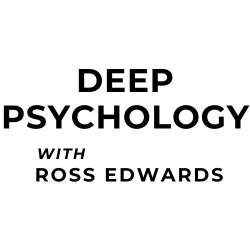[ad_1]


Living with chronic pain is more than just a physical struggle; it deeply affects mental well-being. When pain persists over time, it can lead to frustration, exhaustion, and feelings of hopelessness.
Experts suggest that there’s a strong connection between chronic pain and depression. This type of pain, which lasts for months, can interfere with your daily life and also lead to anxiety.
Many people dealing with chronic pain experience anxiety, depression, or emotional distress because their daily lives become dictated by discomfort. A crucial part of managing chronic pain is recognizing its emotional toll and dealing with it accordingly.
Here’s how you can take care of your mental health when dealing with chronic pain.
Being Extra Careful When Using Implantable Devices
Medical implants, including pain management devices, can be a valuable tool for people struggling with chronic pain. Devices such as nerve stimulators or pain pumps can provide relief when other treatments have failed.
However, such implants also come with risks that should not be ignored. Proper care, regular check-ups, and awareness of potential complications are essential when using implants.
The body can react unpredictably to foreign objects, and any discomfort, swelling, or unusual symptoms should be reported to a doctor immediately.
One specific device that requires extra caution is the spinal cord stimulator. The device that led to the Abbott Spinal Cord Stimulator lawsuit, in particular, is of great interest to us here. Reports of device malfunctions, infections, and nerve damage have led to increased scrutiny and legal actions.
According to Trulaw, many individuals who have suffered from complications have pursued a spinal cord stimulator lawsuit to seek accountability for faulty devices. If considering a spinal cord stimulator implant, patients should discuss potential risks with their doctors and ensure they receive proper follow-up care.
Those who already have spinal cord stimulator implants should be vigilant about any new or worsening symptoms.
Practicing Mindfulness and Stress Reduction
Chronic pain can cause a whirlwind of emotions, from anger and sadness to fear and frustration. Mindfulness and stress reduction techniques can help counteract these negative feelings.
Mindfulness, at its core, involves staying present in the moment without judgment. By focusing on the present rather than worrying about past pain or future discomfort, individuals can lessen the emotional impact of chronic pain.
While mindfulness and relaxation techniques do not eliminate pain, they empower individuals to cope with it in healthier ways.
Prioritizing Sleep and Rest
Chronic pain often interferes with sleep, and lack of rest exacerbates both physical and emotional suffering. Pain and sleep have a bidirectional link. Poor sleep quality can worsen the pain and, at the same time, pain can disrupt sleep.
When the body doesn’t get enough sleep, pain sensitivity rises, making relief harder to find. Many people with chronic pain deal with insomnia, waking up often or struggling to get deep, restful sleep. This creates a cycle where the body can’t heal, and the mind struggles to function.
If you want to get better sleep, even when you’re in a lot of pain, create an environment that promotes rest; it really works. Also, consider opting for various relaxation techniques like deep breathing before bed. Such relaxation techniques are known to help the body unwind.
Staying Physically Active in a Safe Way
Staying physically active can play a vital role in both pain management and mental health, even when you are dealing with chronic pain.
Exercise releases endorphins, which act as the body’s natural painkillers and help improve mood. That being said, remember that it’s important to engage in safe, gentle activities that do not worsen pain. Exercising at a moderate pace; it’s more than enough when you’re dealing with chronic pain.
Over time, regular physical activity can lead to improved mental resilience and a greater sense of control over one’s body.
Frequently Asked Questions (FAQs)
Does chronic pain arise only from injuries?
No, chronic pain can result from various conditions beyond injuries, such as arthritis, nerve damage, autoimmune diseases, or even stress-related disorders. Some cases stem from underlying medical issues like fibromyalgia or migraines. Chronic pain can also persist long after an injury has healed due to changes in the nervous system’s pain response.
Does chronic pain heal automatically?
Chronic pain does not typically heal on its own and often requires medical intervention. Acute pain, of course, resolves with time, but not chronic pain; it can persist for months or years without proper treatment. Management strategies like physical therapy, medication, and lifestyle changes are often necessary to control symptoms and improve quality of life.
How can you identify chronic pain without visiting a doctor?
You can identify chronic pain by assessing its duration, intensity, and impact on daily life. If pain persists for more than three months despite rest or basic treatments, it may be chronic. Symptoms like stiffness, burning sensations, or aching that interfere with sleep, mobility, or mood could indicate an underlying condition requiring medical evaluation.
Taking care of your mental health with chronic pain matters just as much as handling the physical side. The emotional weight can be tough, but there are ways to lighten the load. The right care can improve both body and mind., and help you better deal with the pain.
Follow Deep Psychology and join tens of thousands
of like-minded people today.
[ad_2]
